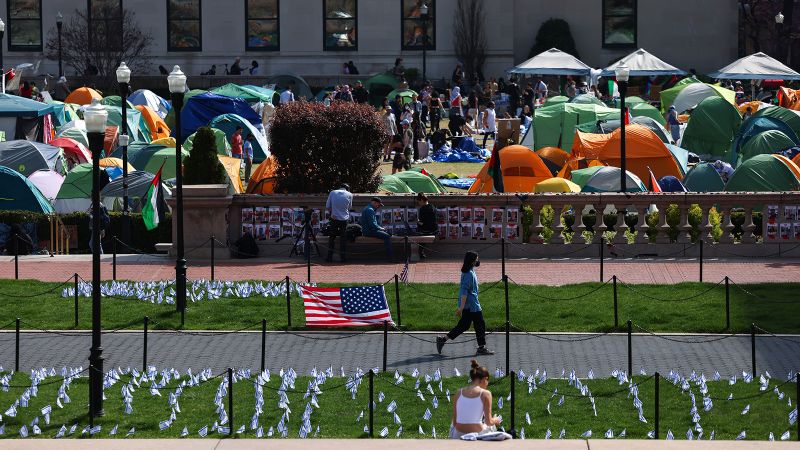The new school year is beginning in chaos, as Columbia President Minouche Shafik unexpectedly resigned amid mounting pressure over the university’s handling of campus protests last year following Hamas’ attacks on Israel and the war in Gaza. Shafik’s resignation came as a shock to many as students returned to a relatively quiet campus after the summer. While she cited personal toll as a reason for stepping down, the timing of her resignation just as the school year began remains unclear.
Columbia faced turmoil over the summer as three deans resigned due to antisemitic tropes in text messages. Despite this, compared to the previous year’s campus protests, the past few months have been relatively calm. Shafik was the fifth Ivy League president to step down in the past year following a wave of campus demonstrations and allegations of antisemitism and anti-Muslim activity. Her promises to crack down on peaceful protests regarding Israel’s actions in Gaza sparked large-scale protests at Columbia and other campuses nationwide.
Calls for Shafik’s resignation escalated as Columbia became a focal point for pro-Palestinian demonstrations calling for divestment from companies supporting Israel and raising awareness of the humanitarian crisis in Gaza. The president faced criticism for authorizing the arrest of protesters on campus, sparking faculty and student backlash. Efforts to negotiate with protest representatives failed, leading to further arrests and allegations of violating academic freedom and students’ rights. The response to nationwide protests has been severe, with over 2,400 arrests at 50 campuses in 25 states.
Shafik’s testimony before Congress on the university’s handling of antisemitism further fueled controversy. Lawmakers found her responses inadequate and questioned the lack of decisive actions against professors and students engaging in antisemitism. As the new school year begins, the aftermath of Israel’s conflict with Hamas, rising antisemitism, and Islamophobia worldwide may continue to incite tensions on university campuses. Several campuses have implemented new policies to address hate speech while protecting free speech rights, but it remains uncertain if protests will be curtailed.
Universities like Harvard have formed task forces to combat antisemitism and other forms of discrimination, recommending steps to improve dialogue and disciplinary processes. It is unclear if these measures will mitigate protests in the new school year or change universities’ responses to demonstrations. A recent ruling at UCLA, where pro-Palestinian demonstrations were restrained from blocking Jewish students’ access to campus, signifies a potential shift in how universities handle such protests. The impact of these new rules and legal decisions on campus dynamics during the upcoming year remains to be seen.













